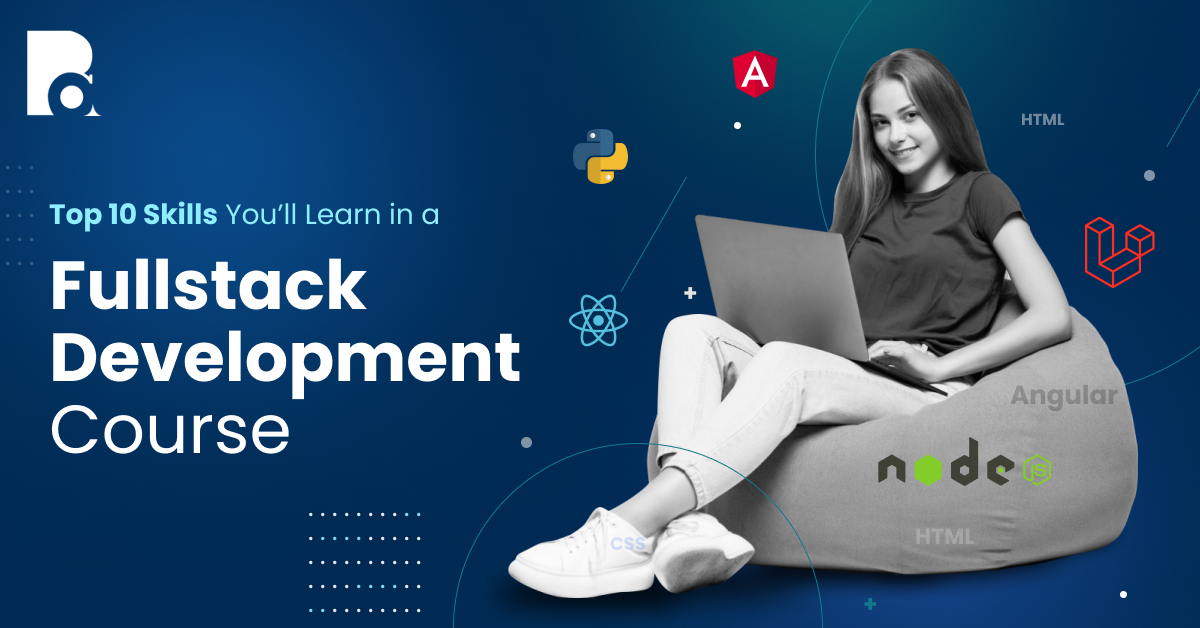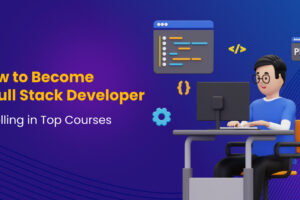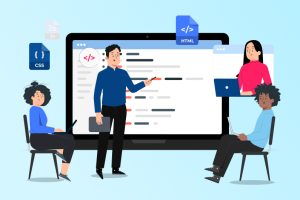
Top 10 Skills You’ll Learn in a Fullstack Development Course
If you see yourself building complete applications—front end, back end, and everything in between—then yes, a Fullstack Development course makes sense. You’ll juggle front-end aesthetics, back-end logic, database structures, and even deployment pipelines. When you learn from industry professionals you will automatically gain the upper hand, as they teach real-world challenges, not theory.
Before enrolling in a full stack developer course in Kolkata, find out the skills you can expect to master.
1. Frontend Development
Building the front end is not as simple as designing a flashy interface. Expert trainers will teach you how to balance aesthetics and functionality. HTML, CSS and JavaScript will be taught as the building blocks of frontend.
When you work on tools like React or Angular, you can create visually appealing websites that load fast, adapt to any device, and are accessible to all users. Through practice you will understand why certain design decisions make sense—how colors, layouts, and animations influence user engagement.
2. Backend Engineering
Development logic and behind the scenes operations are part of backend engineering. On Node.js or similar frameworks training will be provided in server-side programming. One of the modules of the course will include Application Programming Interfaces or APIs, which are software that join the frontend to any database and services required. After working on authentication systems, session management you will be able to make the backend secure and efficient.
3. Database Management
Storage and retrieval of data are required for smooth functioning software and databases are used for this purpose. Learning relational databases like MySQL or document-based ones like MongoDB will give you practical experience in data modeling, indexing, and optimization. Through a good full stack web development course in Kolkata, instructors will demonstrate ways to manage relationships between data and see to it that your application easily deals with datasets, no matter their size.
4. Version Control
Familiarity with the Git interface is essential for managing code, especially as you will be working with other colleagues. On the platform, you’ll be taught how to track changes, revert to previous versions, and collaborate on projects. The course will train you to handle branching, merging, and resolving conflicts so that your codebase stays organized and manageable.
5. Deployment
As part of the course, you will learn how to work on CI/CD pipelines, Docker containers, and cloud deployments. At this point, you’ll understand the steps to take your code from your laptop to the live environment. The health and performance of the software you have newly deployed will need to be monitored and you will also come to know how to handle roll backs in case of any issues.
6. Debugging
Training will be provided on finding the root cause of errors in your code. Instructors will make you familiar with Chrome DevTools, Postman, and debugging features in IDEs (Integrated Development Environments), teaching you to find and resolve bugs and other issues. The course will also cover writing tests using frameworks like Jest or Mocha to ensure your code works as expected before deployment.
7. Strategic planning
As a full stack developer you would have to think beyond the immediate task and map out the entire development lifecycle. You’ll start by breaking down project requirements into actionable tasks. This means understanding client needs, user expectations, and technical constraints.
From there, you’ll plan the architecture—deciding how the front end, back end, and database will interact. Methodologies like Agile or Scrum will be taught to see that projects run smoothly from start to finish.
8. Security Awareness
Common vulnerabilities will be brought to your notice during the course. Threats like SQL injection, cross-site scripting (XSS), phishing attacks will be simulated and you will learn how to deal with them.
But beyond plugging holes, you’ll develop a proactive mindset. Full stack trainers will instruct you in using bcrypt for password hashing and they will also show you the steps to implement secure authentication systems with JSON Web Tokens (JWT).
9. Performance Optimization
Instructors will teach you how to design systems that can handle growth without falling apart. You’ll learn techniques like caching, lazy loading, and database indexing to improve performance. At this stage, you will be introduced to monitoring and profiling tools, which enable developers to spot bottlenecks and optimize resource usage.
10. Collaboration
Collaboration, time management, and problem-solving are the foundation that support your technical expertise. Writing clean, maintainable code is essential when working with a team.
You’ll learn to communicate your ideas, document your work, and handle feedback like a professional. Instructors will teach you simple ways to document your work, conduct code reviews and get familiar with Slack or Trello or other project management tools.
How the Course is Taught
The course is designed to be practical. You’ll learn from trainers who have real-world experience in software development. The focus is on hands-on projects, where you’ll apply what you’ve learned to build complete applications. Students will graduate with a portfolio of work that demonstrates their skills to potential employers.
By the time you finish the full stack developer course in Kolkata, you’ll have the knowledge and confidence to take on professional development roles. Every skill you learn is aligned with what companies look for in developers, making you job-ready from day one.



